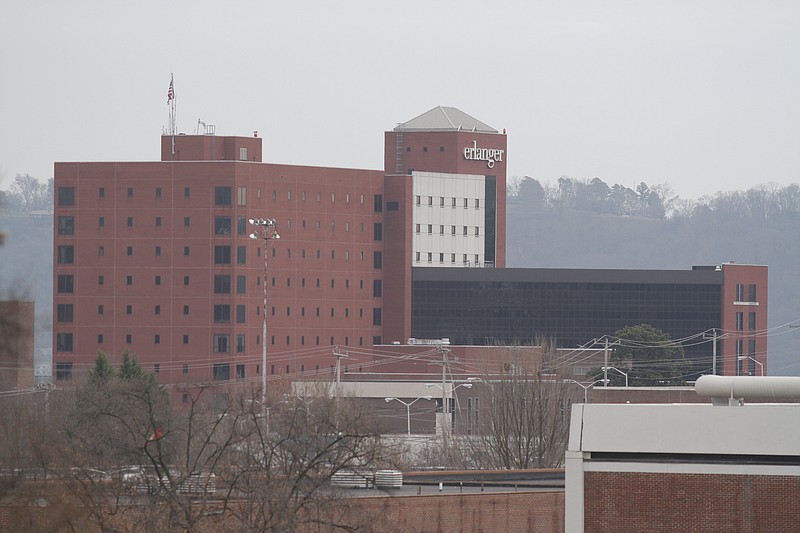NASHVILLE -- Two state lawmakers have introduced a bill shutting down an exception to Tennessee's Open Meetings Act that allowed Erlanger Health System trustees to use a closed-door meeting to lay the groundwork for $2.7 million in bonuses for the public hospital's executives.
The bill, filed earlier this week, is sponsored by Sen. Todd Gardenhire, R-Chattanooga, and Rep. Mike Carter, R-Ooltewah.
It wipes out a 2008 loophole lobbied for by public hospitals which allows officials to close meetings and confidential records concerning "marketing strategies" and "strategic plans."
The bill (HB16/SB26) affects every public hospital in the state.
Gardenhire charged Erlanger trustees "abused the spirit of the law and since they've done that we need to change the law and just make them operate in the 'sunshine' so everyone can know what they're doing."
Carter, who had also weighed simply requiring a court reporter keep a verbatim transcript, said he and Gardenhire decided on a straight repeal of the 2008 exception.
"Sounder minds have prevailed -- that if I give them [Erlanger trustees] any chance at all they'll just abuse that, too," Carter said.
Erlanger spokeswoman Pat Charles said in an email statement to the Times Free Press that "as always, the Erlanger Health System will continue to comply with open meetings and records laws, as well as any exemptions that fall under those laws."
"However," she added, "public hospitals should be treated as all hospitals in the state of Tennessee and not be put at a competitive disadvantage."
That was the argument -- that private hospitals had a strategic business advantage -- that public hospitals advanced when persuading state lawmakers to approve the exception to the Sunshine Law in 2008.
The state's open records law says deliberations on public business must take place openly.
Carter also said that he formally requested Tennessee Attorney General Herbert Slatery on Thursday for a legal opinion. That's on the issue of whether hospital trustees violated the open meetings law when discussing paying the performance-related bonuses during two closed meetings before a public vote on Dec. 4.
Trustees have said the bonuses were earned according to benchmarks set in early 2014. Those benchmarks were not made public until December.
The board later launched a legal review of the process, using its law firm, Spears, Moore, Rebman and Williams. After their lawyers said the process was legal, the board announced the payouts would proceed in two waves.
The vote gave bonuses to 99 managers, headed by Erlanger CEO Kevin Spiegel, who was hired nearly two years ago to restore the hospital's financial soundness. Under new managers the hospital aggressively cut spending by freezing vacation time, tightening benefits and phasing out pensions and retiree insurance.
The hospital also pushed to be included in a federal pool of money available to two other hospitals that provide large amounts of uncompensated care. After a successful lobbying effort by local, state and federal officials, Erlanger was included and received a $19 million infusion of federal funds. It ended the year with a profit.
Gardenhire said recently that has put a dark cloud in his current deliberations on whether to approve Gov. Bill Haslam's Insure Tennessee proposal, which would expand Medicaid to 200,000 Tennesseans and bring in an additional $800 million in federal funds hospitals are clamoring for.
The Erlanger payouts "could be the most expensive bonuses anybody has ever gotten," Gardenhire said.
Contact staff writer Andy Sher at asher@timesfreepress.com or 615-255-0550.
